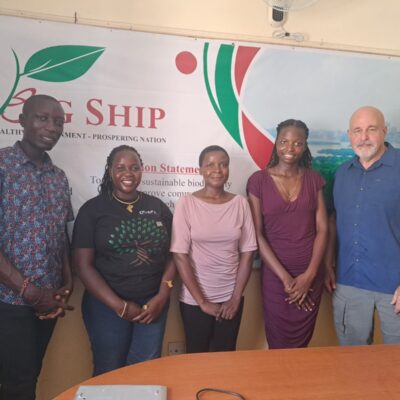Listeners:
Top listeners:
-
 play_arrow
play_arrow
101 | Interface, Inc. Has Earned the Right to Move Beyond Offsetting, But Others?
-
 play_arrow
play_arrow
100 | The Untold Story of the Voluntary Carbon Market
-
 play_arrow
play_arrow
99 | Mombasa’s Big Ship: Reviving Urban Mangroves by Raising Communities
-
 play_arrow
play_arrow
098 | The Case of the Tangled Titles: Unraveling the Legal Complexities of Land Ownership in the Amazon
-
 play_arrow
play_arrow
97 | The Mosaic, the Minefield, and a Manifesto
-
 play_arrow
play_arrow
096 | Encore Presentation: Tim Mohin on Overcoming Information Asymmetry in the ESG Movement
-
 play_arrow
play_arrow
95 | "Co" Benefits vs "Core Benefits:" Geoff Mwangi and His Theory of Change Steve Zwick
-
 play_arrow
play_arrow
94 | Zimbabwe's Cannabis Queen, Zorodzai Maroveke, AKA "Dr Zoey" Steve Zwick
-
 play_arrow
play_arrow
93| Digitizing Zimbabwe's Farms, with Chiyedza Heri Steve Zwick
-
 play_arrow
play_arrow
92 | COP 28 Article 6: Expectations for Final Day Steve Zwick
Transcript
On Thursday, 65 countries representing 83% of international aviation agreed to cap their greenhouse-gas emissions from international flights at 2020 levels from 2021 onward – in part by forcing airlines to offset emissions above that threshold, and MAYBE by funding programs that save forests and support sustainable agriculture around the world. A final decision on offset types, however, isn’t expected until 2018
Backgrond: The Paris Climate Agreement created a framework for keeping the global rise in temperatures below 2 degrees Celsius (3.6 degrees Fahrenheit) over pre-Industrial levels, but it left emissions from international flights in limbo – partly because their “international” nature made it hard to reach agreement on which countries to charge the emissions to.
That changed on Thursday, when the International Civil Aviation Organization (ICAO), the UN agency charged with coordinating aviation regulation, including environmental impact, agreed to freeze net aviation emissions at 2020 levels beginning in 2021, and to force airlines to offset emissions above that threshold.
The program, called “CORSIA” (Carbon Offsetting and Reduction Scheme for International Aviation), will be phased in, with a voluntary pilot phase running from 2021 through 2023, then a second voluntary phase from 2024 through 2026, and a final phase, running from 2027 through 2035 that is mandatory for all countries except the very poor.
ICAO President Olumuyiwa Benard Aliu said that 65 countries had already signed on for the voluntary phase, and these countries together represent nearly 83 percent of total aviation miles, measured in “revenue tonne kilometers” (RTKs), which translate into one metric ton of load (human passengers or cargo) per kilometer traveled.
Includes Interviews with Dutch environmental attorney Jos Cozijnsen and Arjun Patney, policy director of the American Carbon Registry.
Episodes
098 | The Case of the Tangled Titles: Unraveling the Legal Complexities of Land Ownership in the Amazon
Forest Carbon April 16, 2024





